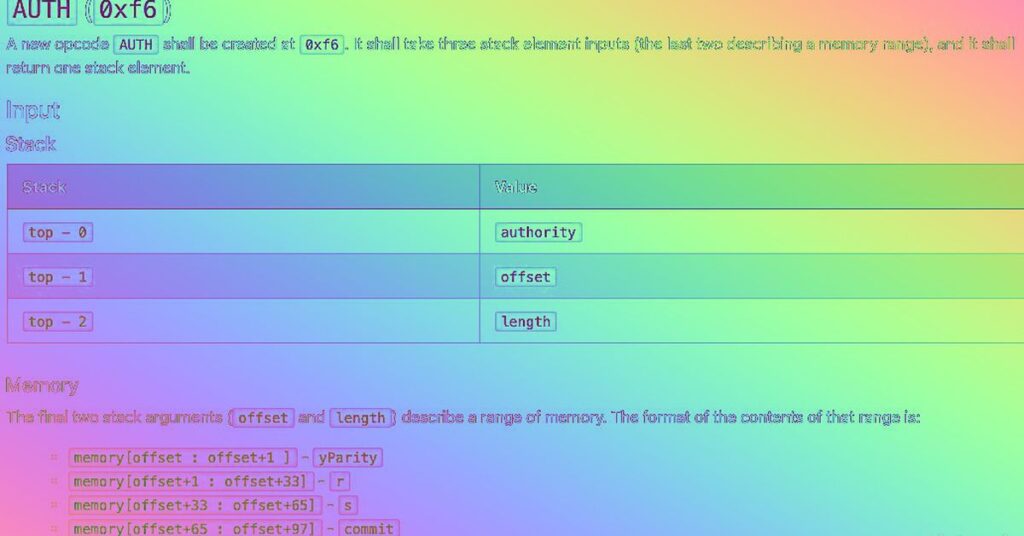As blockchain teams strive for the holy grail of mainstream adoption, making cryptocurrency wallets easy to use has suddenly become a top priority.
Ethereum developers have been moving forward with discussions and inclusion of specific Ethereum Improvement Proposals (EIPs) for the blockchain’s next big hard fork. Pectra.
One proposal that has garnered both support and concern from the Ethereum community is EIP-3074. This is a code change aimed at improving the user experience with wallets on the blockchain.
Ethereum developers have in the past been working on issues that ease the user experience with the wallet and rolling out features that unlock new functionality. But now, developers are aiming to make that experience even easier and incorporate it into the blockchain.
This new change is believed to make a specific type of wallet, an Externally Owned Account (EOA), more programmable by allowing it to be authorized to smart contracts.
Paradigm Chief Technology Officer Georgios Konstatnopoulos said in X EIP-3074 says, “Big deal. The UX of your wallet will be 10x.”
There are currently two on Ethereum. Types of wallet accounts: The most popular EOAs such as MetaMask and Coinbase wallets, and smart contract wallets such as Argent and Safe.
Users of EOA accounts are given a public/private key pair, while smart contract accounts are wallets controlled by code. EOA problems ultimately come down to human error. If you lose your EOA account private key, there is no help desk or key recovery process to help you regain access to your funds.
previous suggestions etc. ERC-4337a concept known as , aims to make EOA easier to use. Account abstraction (AA), users can recover their cryptocurrencies using smart contract functionality.
EIP-3074 This is another step in this kind of innovation, delegating transactional functionality to smart contracts. A key element of this proposal is to allow users to batch transactions together and sign off once. Other features include that the application is decentralized, as third parties sponsor users' transaction fees (daps) For example, it can cover the user's gas costs.
The proposal, created in October 2020, also allows users to sign transactions sent by another party. For example, you can sign transactions from another interface or sign them offline. According to the document, the authors are Sam Wilson, Ansgar Dietrichs, Matt Garnett, and Mika Soltu.
The main difference between EIP-3074 and ERC-4337 is that “the former focuses on getting all the benefits of execution abstraction, while the latter focuses on getting all the benefits of account abstraction on all EVM chains. , but the method is non-native. It's inefficient,” said Ethereum Foundation developer Yoav Weiss. write. “Both are steps toward reaping the benefits of full native account abstraction.”
While many in the community expressed support for this proposal, some cautioned against proceeding with it due to security concerns with the batch transaction functionality.
Lukas Schor, co-founder of Safe, advocated implementing full account abstraction in ERC-4337 and Ethereum wallets. Concerns were raised He said that while the proposal was a step in the right direction, he was concerned that the EIP “doesn't have a clear path to full AA and will have a net negative impact on AA adoption.” .
Itamar Rusuis, co-founder of Argent Wallet, also said: Posted in X It said EIP-3074 could be a serious security concern, writing that “a fraudster could potentially compromise an entire wallet with a single off-chain signature.” We expect this to be a major use case. ”
Mudit Gupta, chief information security officer at Polygon Labs, said: I also had Due to security concerns, we are asking wallets to “prohibit EIP-3074 MAGIC signatures on a per-wallet basis.”
“For security reasons, we don't want to expose our cold wallets to AA batching,” Gupta added.


